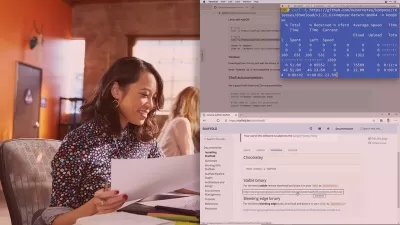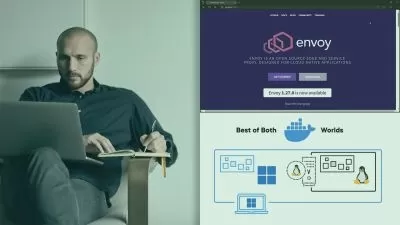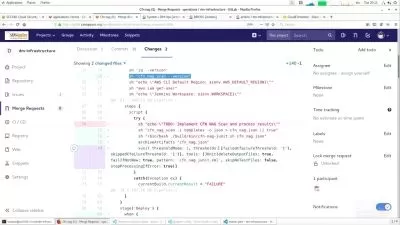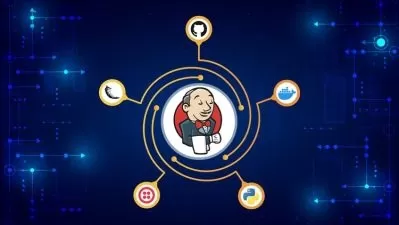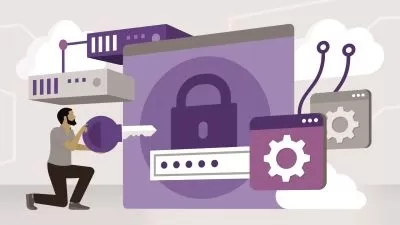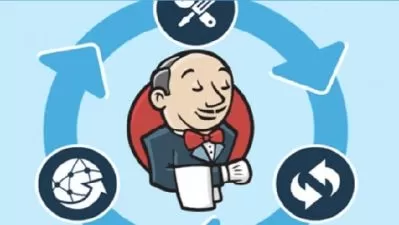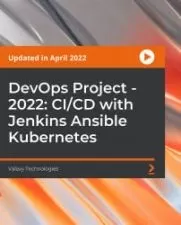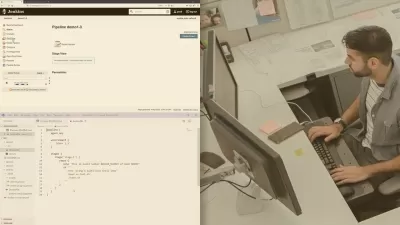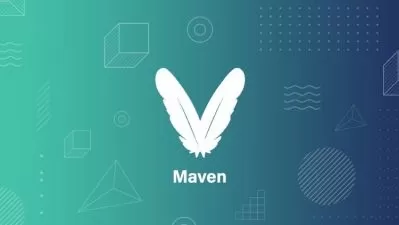Continuous Code Inspection with SonarQube
George Spasov
1:24:21
Description
How to integrate SonarQube with your Maven projects
What You'll Learn?
- Deploy Jenkins and SonarQube with Docker
- How to install Jenkins and SonarQube on a Lniux system
- How to integrate SonarQube with Jenkins
- Sonar Scanner integration with Maven plugins and NPM
- How to scan Java and Angualr projects with Sonar Scanner
- SonarQube multi module Maven project integration
- Identifying bugs, vulnerabilities, tech debt, code coverage and code smells in software projects
- Tips and tricks for easier integration
Who is this for?
What You Need to Know?
More details
DescriptionIf you’re looking for a hands-on practical course to integrating continuous code inspection of your Java and Angular applications, you’ve come the right place.
The course that will guide you through the process of installing, integrating and using SonarQube with applications that utilize the Maven build system.
As a byproduct, you will also get to know DevOps tools like Jenkins and learn how to setup continuous code inspection for your codebase.
This course is focused on Maven projects. It reflects all scenarios that can occur during the integration of SonarQube with your single- or multi module Maven applications. We will briefly go over maven basics, and we will discuss single module Java applications, single module Angular applications, as well as multi-module mixed applications, where your Java and Angular codebase is placed in different modules.
Finding the right pieces to the puzzle is often times demanding, but using the resources I’ve prepared, you will be able to configure your projects without wasting any valuable time on research.
By the end of the course, you will get to know how to implement continuous code inspection with SonarQube automated by Jenkins, and take the firsts steps to developing an easily maintainable product with high quality.
DURING THE COURSE, YOU WILL LEARN TO:
Setup your Jenkins and SonarQube on a Linux Virtual Machine or with Docker containers
Integrate your Maven Projects with SonarQube
Create code coverage reports manually
Create a Jenkins pipeline that automates scanning for you
Identify bugs, code smells, vulnerabilities and code debt in SonarQube
Create quality gates and quality profiles
Understand maintainability, reliability and security ratings in SonarQube
Who this course is for:
- Junior developers
- Angular and Java developers that want to build quality and maintainable products
- Managers and Architects that are part of the decision-making staff
- DevOps Teams
If you’re looking for a hands-on practical course to integrating continuous code inspection of your Java and Angular applications, you’ve come the right place.
The course that will guide you through the process of installing, integrating and using SonarQube with applications that utilize the Maven build system.
As a byproduct, you will also get to know DevOps tools like Jenkins and learn how to setup continuous code inspection for your codebase.
This course is focused on Maven projects. It reflects all scenarios that can occur during the integration of SonarQube with your single- or multi module Maven applications. We will briefly go over maven basics, and we will discuss single module Java applications, single module Angular applications, as well as multi-module mixed applications, where your Java and Angular codebase is placed in different modules.
Finding the right pieces to the puzzle is often times demanding, but using the resources I’ve prepared, you will be able to configure your projects without wasting any valuable time on research.
By the end of the course, you will get to know how to implement continuous code inspection with SonarQube automated by Jenkins, and take the firsts steps to developing an easily maintainable product with high quality.
DURING THE COURSE, YOU WILL LEARN TO:
Setup your Jenkins and SonarQube on a Linux Virtual Machine or with Docker containers
Integrate your Maven Projects with SonarQube
Create code coverage reports manually
Create a Jenkins pipeline that automates scanning for you
Identify bugs, code smells, vulnerabilities and code debt in SonarQube
Create quality gates and quality profiles
Understand maintainability, reliability and security ratings in SonarQube
Who this course is for:
- Junior developers
- Angular and Java developers that want to build quality and maintainable products
- Managers and Architects that are part of the decision-making staff
- DevOps Teams
User Reviews
Rating
George Spasov
Instructor's Courses
Udemy
View courses Udemy- language english
- Training sessions 17
- duration 1:24:21
- Release Date 2022/11/26






